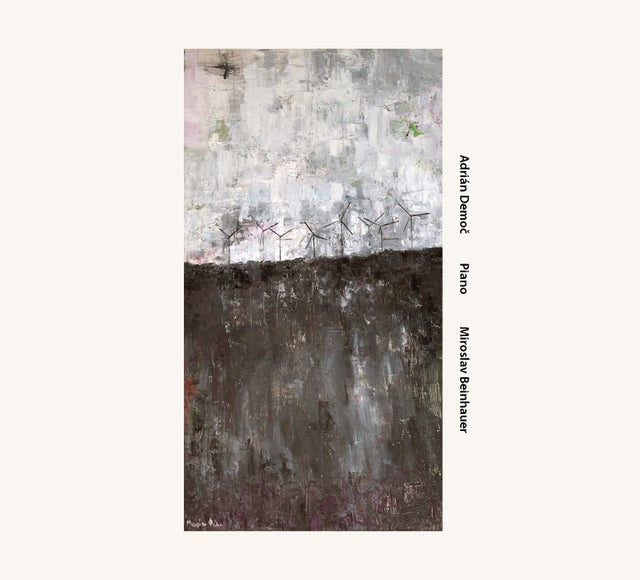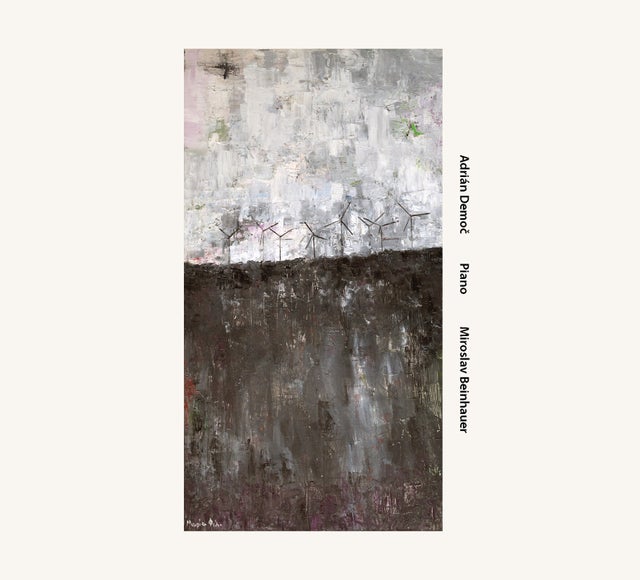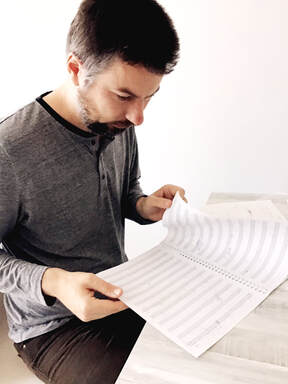Adrián Demoč (1985, Slovakia) studied composition with Martin Smolka, Frantisek Emmert, Doina Rotaru, and Osvaldas Balakauskas in Brno, Bucharest and Vilnius. Prizes in composition include the Leoš Janácek Prize (2008), Cellotronics (2014), Plural ensemble's competition (2016), EDR Foundation (2018), the Czech Philharmonic competition (2018) for the orchestral piece Neha and Ján Levoslav Bella prize (2020). His compositions have been performed by musicians and ensembles such as Klangforum Wien, Apartment House (UK), Manuel Zurria (IT), Tallinn Chamber Orchestra (EST), Françoise Rivalland (FR), Milan Pala (SK), Opera Diversa (CZ), Ostravska banda or Plural ensemble (ES) etc. in festivals and venues in Austria, Canada, Croatia, Czech Republic, Estonia, France, Germany, Lithuania, Romania, Slovakia, Spain, Switzerland, UK and USA. Six profile albums have been released so far: Žiadba, Hlaholika and Neha (Another Timbre), hour-long violin piece Dotyky. Za zrkadlom (Pavlík records), Sen for Gothic and Renaissance instruments (Discreet editions) and Hudba (Za názvom) (Hevhetia). Adrián also writes articles on contemporary music for Slovak magazines Hudobný život and Vlna.
According to Ian Mikyska:
"His music sits comfortably on the edges of several aesthetics, most notably that of American experimentalists like Tenney and Lucier, in contrast with European minimalism (Pärt, Górecki) and spectralism – his doctoral dissertation dealt with spectral music, focusing particularly on the work of Gerard Grisey.
The influence of Feldman is keenly felt, but there is also a specifically European sensibility, sometimes present as nostalgia or lament. In addition to the use of folk instruments (the Slovak fujara and dulcimer) and alternate tunings, this tendency to laments that use historical materials connects him to György Ligeti. However, Demoč tends to isolate a few parameters and work with them exclusively, leading to a non-rhetorical quietude and contemplation entirely unlike Ligeti (Kvarteto, Septett, Lešenie k zahĺbeniu). There is often a sense of the remnants of an earlier music being heard; only its core, its general feeling – a poetics heard from a distance.
At other times, emotional intensity and expression play a crucial role, particularly in his solo music (Apogeum, Katharsis). He has had a very fruitful relationship with the Slovak violinist and violist Milan Paľa, whose passionate style suits the bare feeling of these pieces particularly well."
Adrián Demoč

Adrián Demoč - Piano (CD)
$14.00
$14.00

Adrián Demoč - Piano (lossless)
$10.00
$10.00

Adrián Demoč - Piano (HD)
$10.00
$10.00

